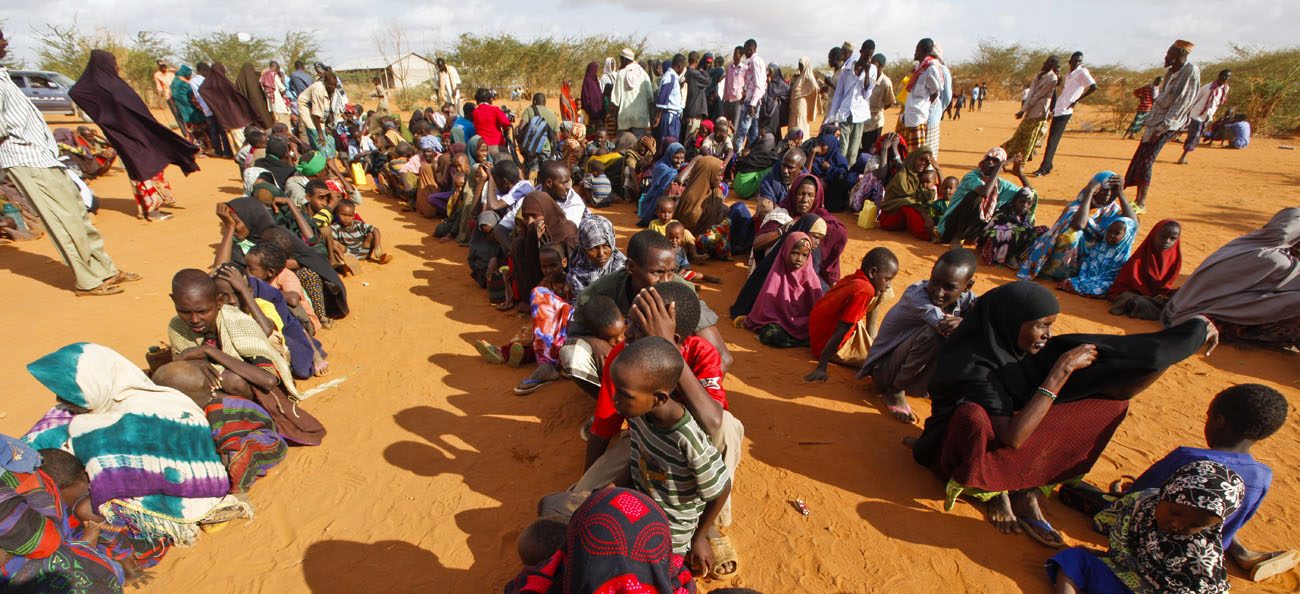NAIROBI, Kenya (CNS) — Kenya’s Catholic bishops urged their government to reverse its decision to repatriate all refugees and close all the refugee camps in the country.
The bishops welcomed the idea that the government was trying to protect national security, but they said security interests must be protected “in accordance with the constitution.” They said the Kenyan Constitution states that “national security shall be pursued in compliance with the law and with utmost respect to the rule of law, democracy, human rights and fundamental freedoms.”
“We remind the government that it bears the primary responsibility to prioritize humanitarian principles in accordance with its international and national laws,” said a May 18 statement signed by the country’s 25 bishops. “We urge the government to show a sincere commitment to the needs of all, including refugees.”
[hotblock]
Kenya’s government said May 6 that it would disband its Department of Refugee Affairs and close the sprawling Dadaab camp, home to mostly Somalis, and Kakuma camp, which has grown through the conflicts in South Sudan and Burundi. The government said hosting refugees posed a security threat, particularly from Somali Islamist group al-Shabab.
“From a humanitarian point of view, closing the Dadaab Refugee Camp will without any doubt have far-reaching implications not only for hundreds of thousands of refugees but to our region at large,” the bishops said, adding that they were committed to working with the government to find long-term and sustainable solutions for refugees.
“Those living in camps have a right to be protected and to enjoy basic services until lasting solutions are found in their home countries,” they said. “We advise the government that any form of involuntary repatriation may expose the returnees to dangers of persecution. We also request the government to respect the existing local and international obligations with regard to refugees.”
The bishops noted that Kenya signed the 1951 U.N. Refugee Convention and the 1969 Organization of African Unity Convention, which obliges the government to protect refugees during their stay in Kenya and prohibits any form of forced return. It also means the country must maintain the civilian and humanitarian character of refugee camps.
“Keeping in line with national and international obligations as well as the Catholic social teachings, we urge the government to show a sincere commitment to the needs of all regardless of difference, especially refugees,” the bishops said.
They said that when Pope Francis visited Africa last year, he reminded the faithful that “how we deal with refugees is a test of our humanity, our respect for human dignity, and above all our solidarity with our brothers and sisters in need.”
Earlier, a coalition of humanitarian organizations, including Jesuit Refugee Service, also asked the government to reconsider closing the camps. They said shutting down the camps will put the refugees, mostly women, children and unaccompanied minors, at great risk.
“Somalia is faced with drought and other security risks” and is “likely to see an increase in displacement and vulnerability,” the organizations said, adding that the humanitarian crisis in war-torn South Sudan is far from over. Both Somalia and South Sudan are largely ungoverned.
“An abrupt closure of the two camps would mean a humanitarian catastrophe for the region as neighboring countries, especially Uganda, Tanzania and Ethiopia, are already shouldering huge refugee influxes,” the groups said.
Kenya’s Department of Refugee Affairs “delivers crucial administrative services for refugees and asylum seekers, and its disbandment would create an immediate critical service provision and coordination gap for management of refugee affairs,” they said.
PREVIOUS: Indian couples frustrated as Missionaries of Charity stop adoptions
NEXT: Focus on mercy is Catholic-Lutheran common ground, cardinal says




Share this story